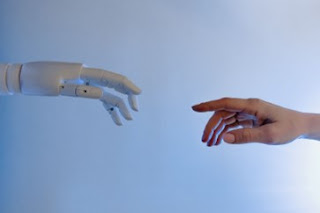In today's rapidly evolving world, artificial intelligence (AI) is becoming increasingly integrated into our daily lives. From smart homes to autonomous vehicles, AI has the potential to reshape how we live and work. However, as this technology advances, there is a growing realization that young people must develop not only technical skills, but also social emotional learning (SEL). Youth programs can play a vital role in equipping the next generation with the social emotional skills crucial to thrive in an AI-driven society.
Artificial intelligence refers to the development of computer systems capable of performing tasks that typically require human intelligence, such as problem-solving and decision-making. Yet while AI can automate many routine tasks, it cannot replicate essential human qualities, such as empathy, creativity, and critical thinking. Here’s why social emotional skills are needed to successfully navigate the complexities of an AI-driven society:
- Empathy and collaboration. As AI becomes more prevalent, human interaction and collaboration will remain vital. SEL helps young people develop empathy, understanding, and the ability to work effectively with others. These skills enable them to navigate diverse perspectives, build strong relationships, and collaborate in teams.
- Adaptability and resilience. In a world where technology is evolving rapidly, adaptability and resilience are key. SEL equips young people with the ability to adapt to change, bounce back from setbacks, and embrace continuous learning. These skills foster a growth mindset and enable individuals to thrive in dynamic and uncertain environments.
- Ethical decision-making. AI presents complex ethical challenges, such as privacy concerns, algorithmic bias, and job displacement. SEL helps young people develop ethical decision-making skills, enabling them to critically evaluate the impact of AI and make informed choices that prioritize human well-being, fairness, and social justice.
The role of youth programs
Youth programs play a crucial role in fostering social emotional learning and transferable skills in young people. They promote SEL through supportive relationships, project-based learning, and leadership development:
- Safe and supportive environments: Youth programs provide safe spaces where young people can explore their identities, build self-confidence, and develop meaningful relationships. These environments encourage open communication, respect, and empathy, laying the foundation for the development of social emotional skills.
- Experiential learning: Youth programs often incorporate experiential learning, enabling young people to apply knowledge in real-world contexts. By engaging in hands-on projects and collaborative activities, participants develop problem-solving, critical thinking, and communication skills, all of which are essential for an AI-driven future.
- Mentoring and role models: Youth programs often involve mentorship, connecting young people with caring adults who can provide guidance and support. Mentors serve as role models and help young individuals develop self-awareness, emotional intelligence, and interpersonal skills.
- Cultivating leadership skills: Youth programs provide opportunities for young people to take on leadership roles and develop essential skills such as decision-making, teamwork, and communication. Leadership experiences build confidence and empower individuals to become positive change agents in an AI-driven world.
As artificial intelligence continues to advance, it is essential to recognize the significance of social emotional learning in preparing the next generation. AI cannot replace the human qualities that contribute to our well-being and success, and youth programs play a vital role in nurturing these attributes. By investing in SEL, we empower young people to navigate the challenges and opportunities presented by AI, creating a more inclusive, compassionate, and technologically adept society.
-- Kate Walker, Extension professor and specialist in youth work practice
You are welcome to comment on this blog post. We encourage civil discourse, including spirited disagreement. We will delete comments that contain profanity, pornography or hate speech--any remarks that attack or demean people because of their sex, race, ethnic group, etc.--as well as spam.

Comments
Post a Comment